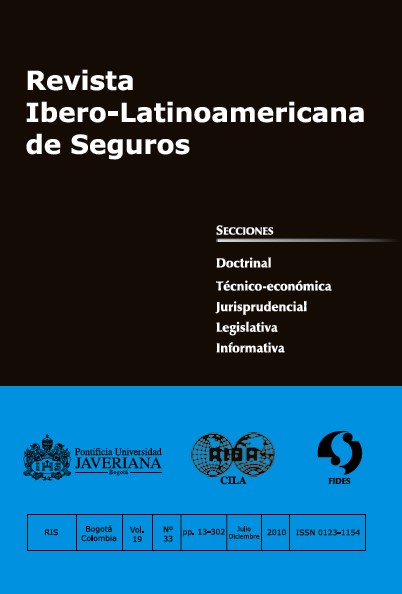Abstract
The coverage usually offered in the Colombian insurance market to cover for the risk known as “Infidelity of Employees”, that is, the risk of improper use of the Assured’s money or property by workers at the service of the Assured, is afforded pursuant to the so-called Infidelity and Financial Risks Policy or Banker’s Blanket Bond.
As a general rule, the Colombian insurance market affords said coverage for “Infidelity of Employees” to banks and other financial institutions under the abovementioned Infidelity and Financial Risk policy as per Form DHP 84, or as per Forms KFA 81 or NMA 2626.
In principle, both of the above first form and second set of forms, cover for losses as sustained by the Assured resulting from dishonest or fraudulent acts of the employees at the service of the Assured, committed either individually or in collusion with third parties with the clear intent to cause a loss to the Assured. For purposes of proving occurrence of the loss it shall be therefore demonstrated that the loss was caused by the dishonest or fraudulent act of the employee and that it was committed with the purpose, intention or aim to cause an equity loss to the Assured.
Now, when dealing with trading or credit operations, the insurers may fear ending up indemnifying under Infidelity of Employees for purely trading losses or merely wrong, negligent or even irresponsible actions of employees at the service of the Assured.
Such fear has led insurers to absolutely exclude from coverage under the DHP 84 Form any losses originated in trading operations and under the KFA 81 and NMA 2626 Forms to demand, when dealing with trading or credit operations, proof of profiteering by the dishonest or defrauding employee.
The present dossier proposes adopting a new clause covering for “Infidelity of Employees” pursuant to which, when dealing with trading or credit operations, the proof of loss, albeit stricter than under different circumstances, does not reach a point where it becomes virtually impossible.
This journal is registered under a Creative Commons Attribution 4.0 International Public License. Thus, this work may be reproduced, distributed, and publicly shared in digital format, as long as the names of the authors and Pontificia Universidad Javeriana are acknowledged. Others are allowed to quote, adapt, transform, auto-archive, republish, and create based on this material, for any purpose (even commercial ones), provided the authorship is duly acknowledged, a link to the original work is provided, and it is specified if changes have been made. Pontificia Universidad Javeriana does not hold the rights of published works and the authors are solely responsible for the contents of their works; they keep the moral, intellectual, privacy, and publicity rights.
Approving the intervention of the work (review, copy-editing, translation, layout) and the following outreach, are granted through an use license and not through an assignment of rights. This means the journal and Pontificia Universidad Javeriana cannot be held responsible for any ethical malpractice by the authors. As a consequence of the protection granted by the use license, the journal is not required to publish recantations or modify information already published, unless the errata stems from the editorial management process. Publishing contents in this journal does not generate royalties for contributors.


